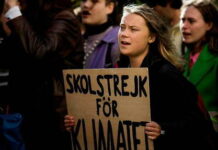Election after election is a constant in Brittany: the lucky ones always come from political parties placed at the center of the political spectrum. First there was the Gaullist right and Christian democracy, at the end of the Second World War, then the social democracy which accompanied the accession to power of François Mitterrand in the big cities until allowing the Socialist Party to achieve, at the turn of the 2010s, a quasi-hegemony over the region.
Only, in these territories where we first campaigned by seeking out moderate voters, the sudden emergence of Emmanuel Macron upset the balance. In the wake of Jean-Yves Le Drian, the successive rallies of heavyweights in local politics – Richard Ferrand in Finistère, Éric Bothorel in Côtes-d’Armor, Paul Molac and Gwendal Rouillard in Morbihan, all outgoing deputies – enabled the fledgling Republic on the Move (LREM) to make a sensational debut on the regional scene during the 2017 legislative elections. we must add the mandate of François André, invested by the PS but who will ultimately sit as a relative of the LREM group in the National Assembly until his death in February 2020. “La République en Marche has managed to make the connection between the center right and center left”, analyzes Romain Pasquier, research director at the CNRS and teacher at Sciences Po Rennes.
If it will be difficult for him to conquer the mandates of the Republican deputies Marc Le Fur (3rd district of Côtes-d’Armor) and Jean-Luc Bourgeaux (7th district of Ille-et-Vilaine), the centrist group in the Assembly national has already obtained the support of Thierry Benoit (ex-UDI), favorite for his re-election in the 6th district of Ille-et-Vilaine.
Elsewhere, he will have to defend his positions. This will be particularly the case in the 2nd constituency of Finistère, that of Brest-Centre, where the outgoing Jean-Charles Larsonneur will present a dissenting candidacy, for lack of having been renewed by LREM. Same uncertainties in Rennes, where the success of Hind Saoud in the 1st district of Ille-et-Vilaine and the re-election of the first quaestor of the Assembly Florian Bachelier in the 8th are far from certain.
In these territories, the greatest threat will come from the New People’s Ecological and Social Union (Nupes). But Romain Pasquier is very skeptical about the large-scale success of this union of the left, guilty of not having “not taken local balances into account at all” in the region. “The ecologists, who are strong in Rennes, have almost no constituency. There are a lot of rebels [15 candidates out of 27 constituencies, editor’s note], even though they don’t weigh anything locally”, sums up the political scientist, who “predicts a difficult tomorrow for Nupes in Brittany”.
As for the National Rally (RN), which came first in several towns in Central Brittany in the second round of the presidential election, it should hardly weigh in the debates. “It was a rural vote, a vote of purchasing power, a vote of economic fragility, explains Romain Pasquier. In the legislative elections, RN candidates in Brittany will find very low water levels, between 8 and 10%. »


















